Urban Explorer Seph Lawless is known for exploring empty, eerie places — and Picher, Oklahoma, is definitely one of the most unsettling.
Picher started out as a promising mining town in 1918, but today, it is known as the most toxic city in America. After years of water contamination and sludge buildup, the whole town was evacuated.
For his latest project, Lawless journeyed to this foreboding town and walked its silent streets. There is nothing safe about being inside Picher’s city limits, but that definitely wasn’t enough to extinguish his curiosity.
Abandoned for over a decade, this city once thrived with a booming mining industry in the early 20th century.
During Oklahoma’s expansion in 1913, huge amounts of lead and zinc were found in the area. Being at the center of all this new mining work, a settlement was formed and its population had reached nearly 10,000 people by 1920.
It was named after Oliver Picher, owner of the Picher Lead Company.
It became so successful that at one point, it was producing over $20 billion of ore, quickly making it the most lucrative mining settlement in the state.
Over half of the lead and zinc used by the U.S. military during World War I came from the city.
But everything changed after mining stopped in 1967. Hazardous waste and contaminated water from mine shafts created a toxic environment.
The situation got so bad that the U.S. government designated it as a Superfund site, which identified it as a candidate for cleanup because of the dangerous risk that was posed to people living there.
Unfortunately, Picher couldn’t be salvaged. Officials evacuated the area in 2009 and classified it as the most toxic city in America.
Residents were forced out of their homes and relocated. They left many of their possessions behind, which turned their houses into chilling time capsules that now commemorate an awful point in Oklahoma’s history.
Lawless noticed when he started exploring that people’s clothes were still hanging in their closets as if they’d only just left.
Because of extensive mining, the ground beneath the explorer’s feet could have given way at any time.
As Lawless walked through the streets, he feared that he would fall to his death.
Mining also left behind huge piles of siliceous rock and dolomite waste called “chat.” The mounds are so large that they look like mountains surrounding the city.
Approximately 34 percent of children from Picher were found to be suffering from lead poisoning by the time 1996 rolled around.
In the short amount of time that Lawless spent on one of the hills, he reported feeling nauseous and very uneasy.
But despite all of the dangers, the city’s pharmacist, Gary Linderman, refused to leave his home. Lawless was supposed to visit with him during his journey through Picher, but sadly, Linderman died from a mysterious illness just days before their scheduled meeting.
The city now stands lonely and forgotten.
This chilling image shows a makeshift barricade that was built by those who fled the city to warn newcomers that they should stay away.
It’s obvious to anyone who enters that they are not welcome or safe in Picher, but that doesn’t stop urban explorers like Lawless from documenting the area’s ruins.
Although the eerie locale is uninhabitable today, its ghostly beauty is undeniable. According to Lawless, being there is an experience unlike any other.
Take a tour with Lawless through the abandoned city here:

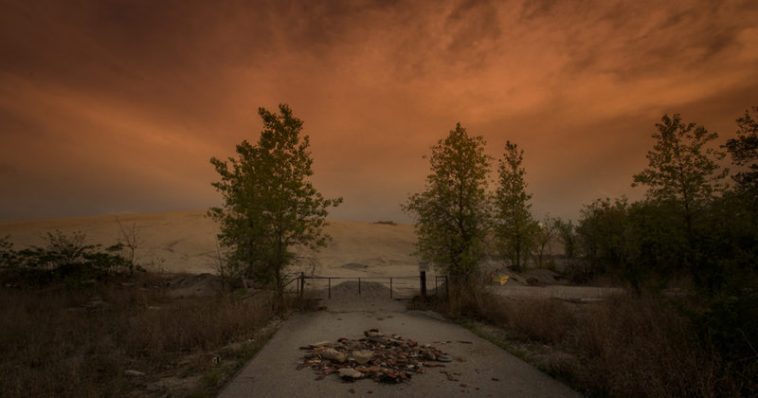
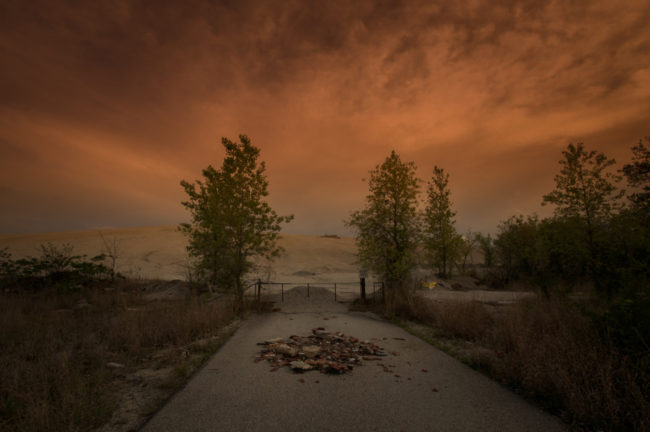
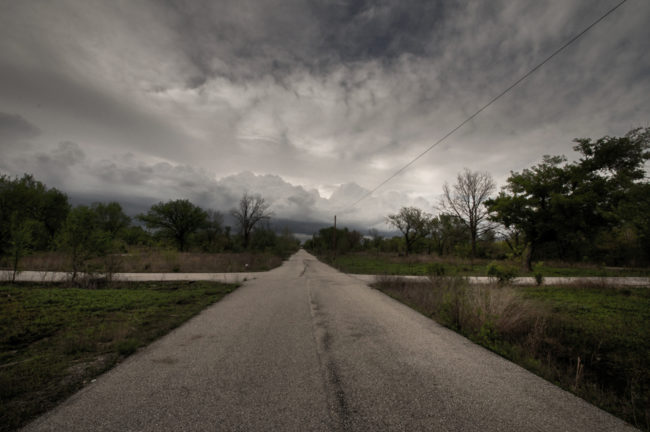
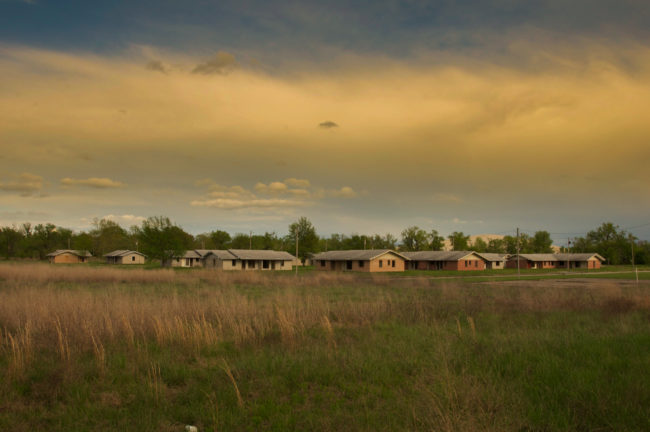
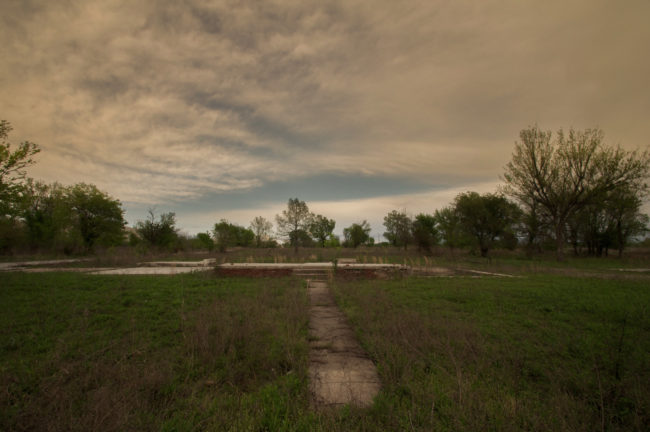
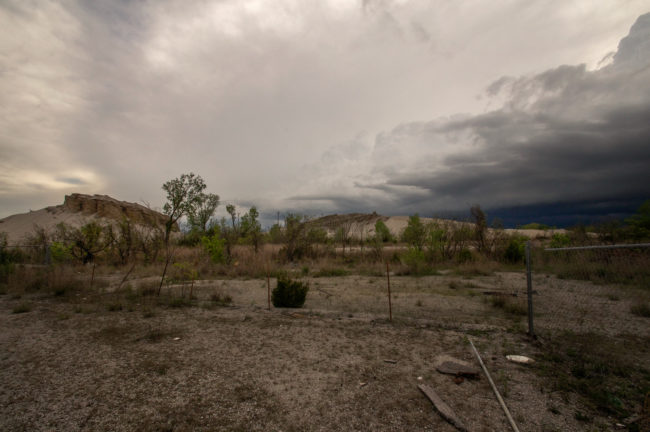
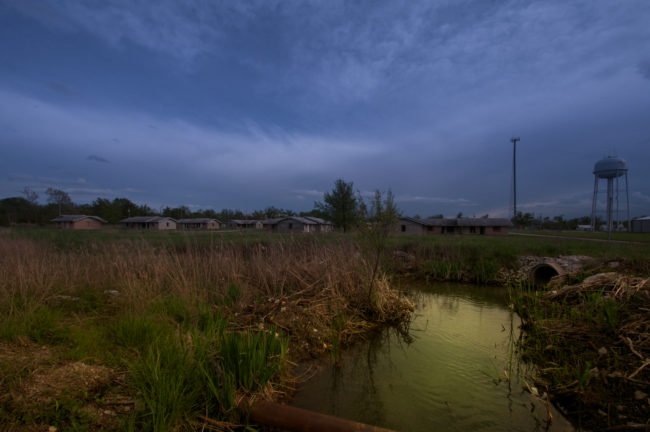
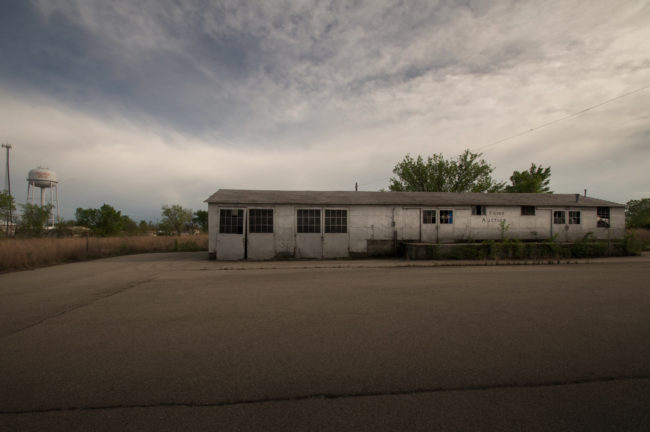
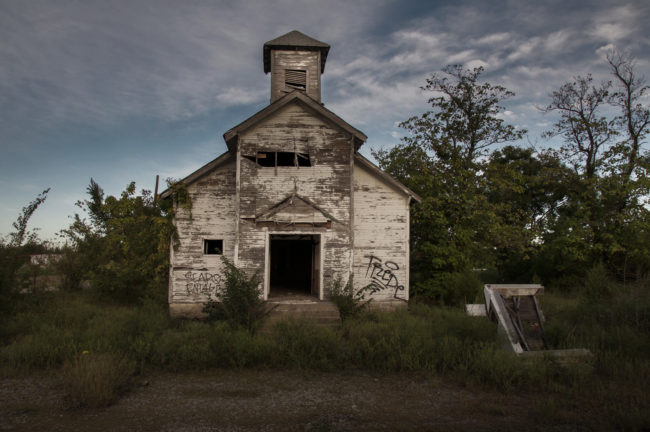
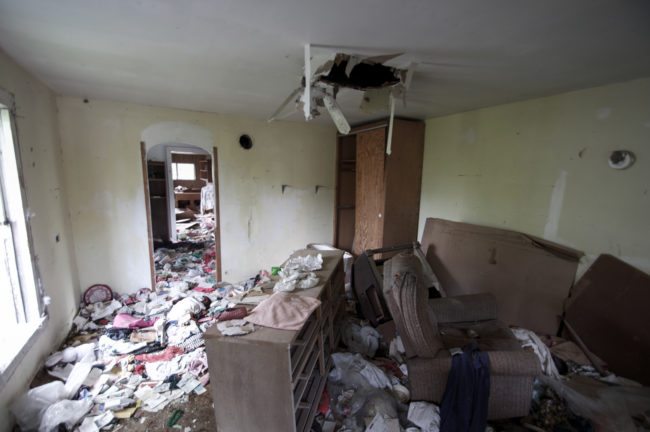
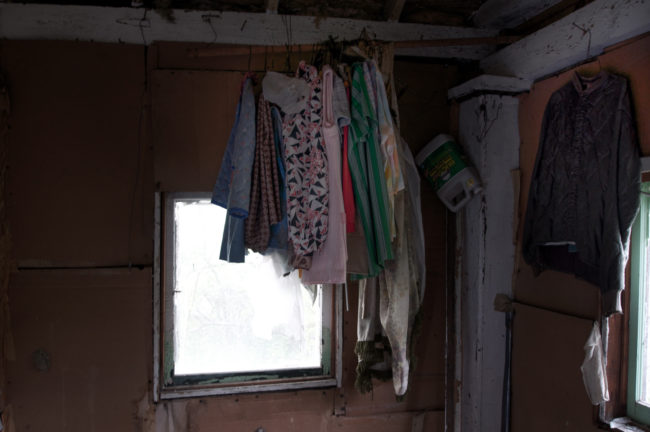
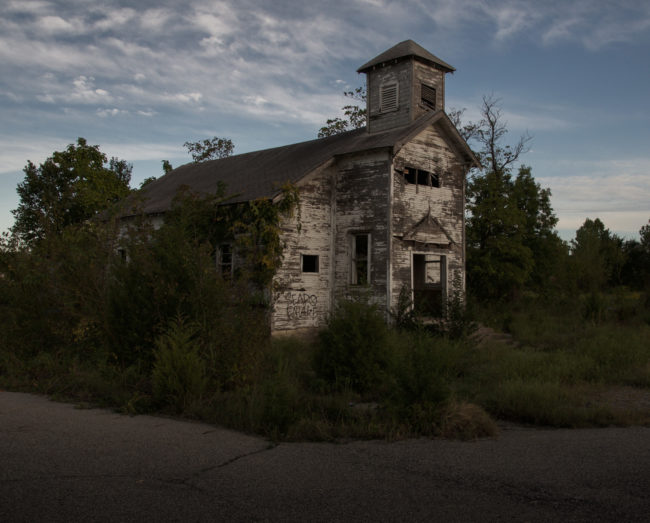
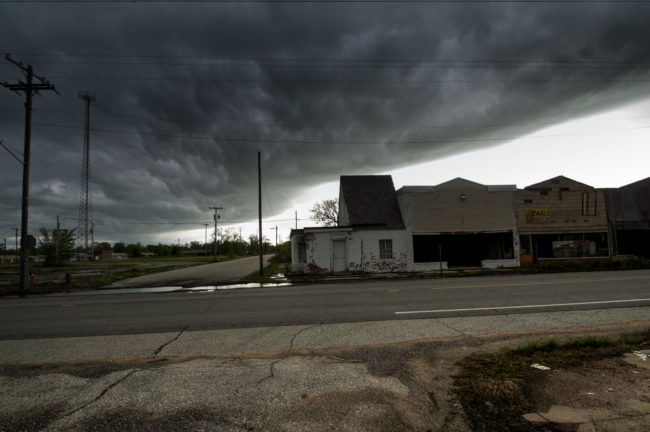
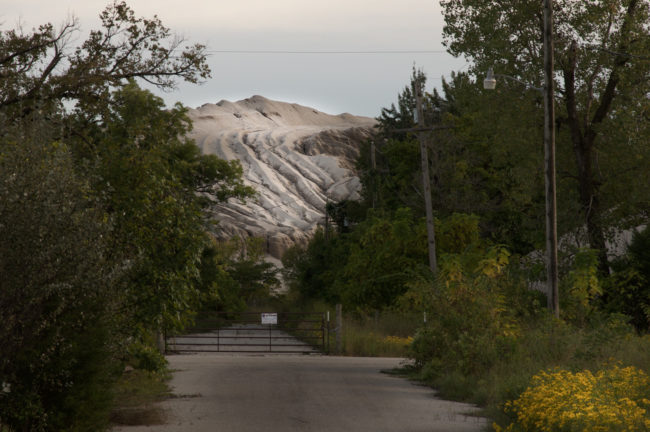
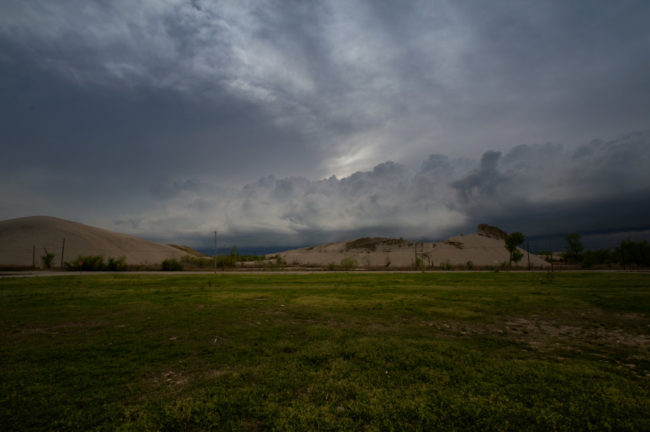
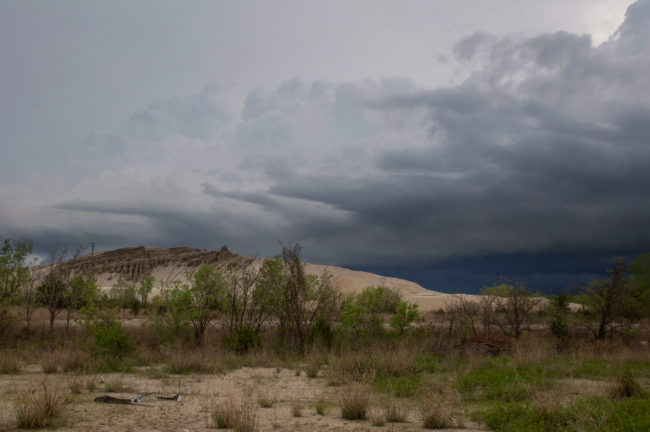
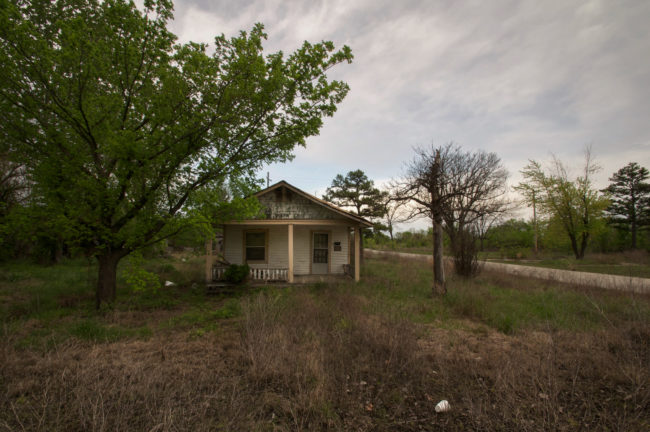
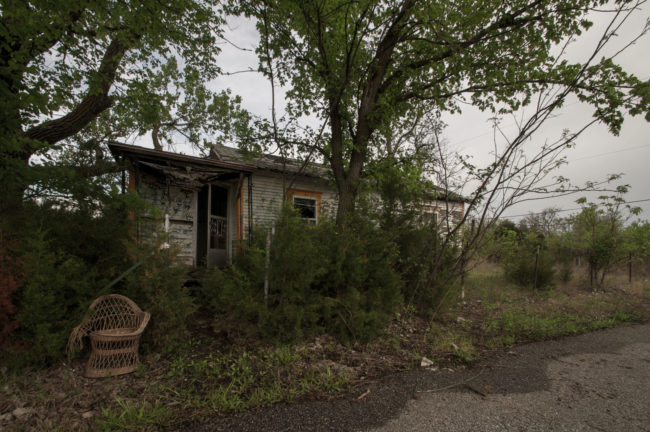
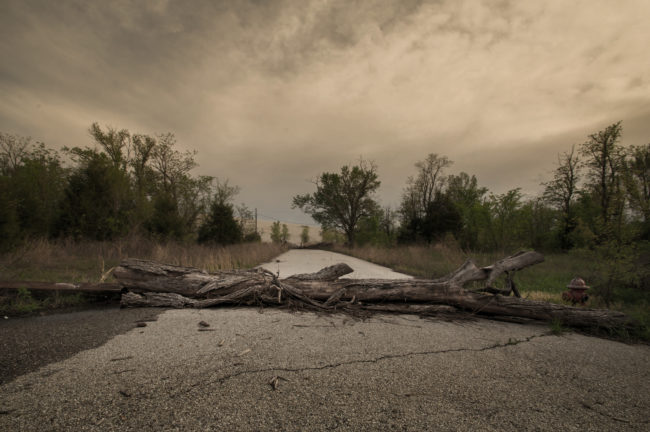
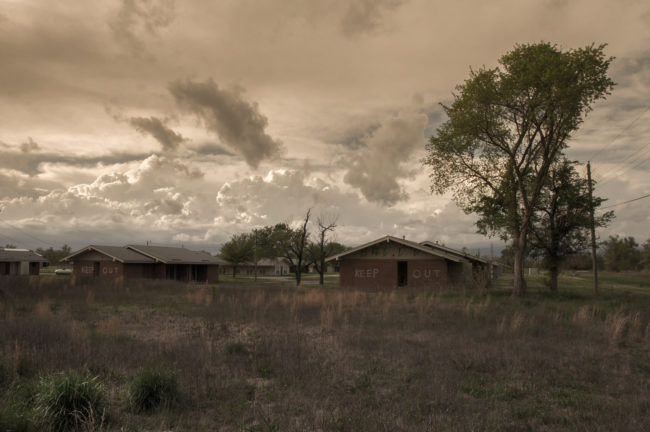
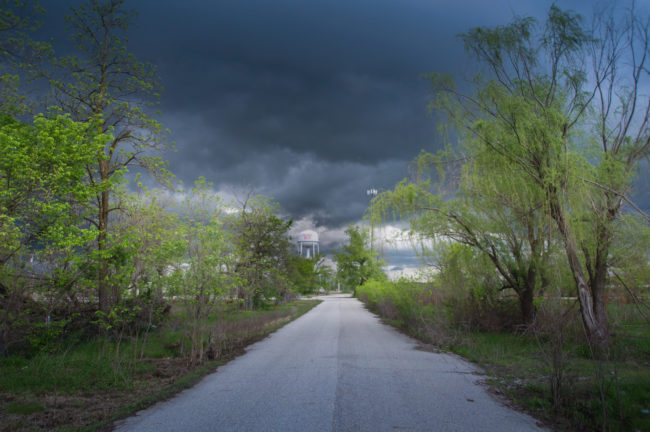


Comments